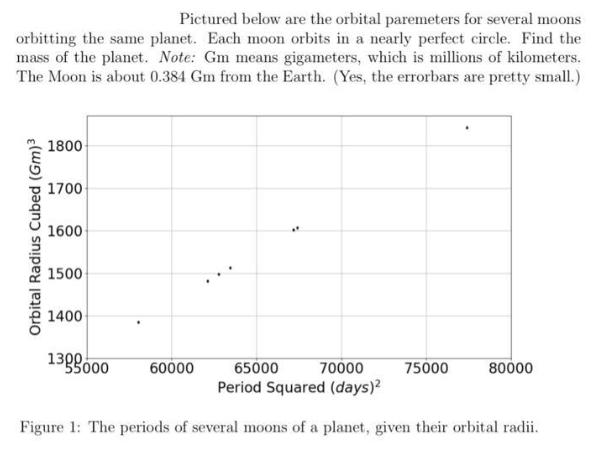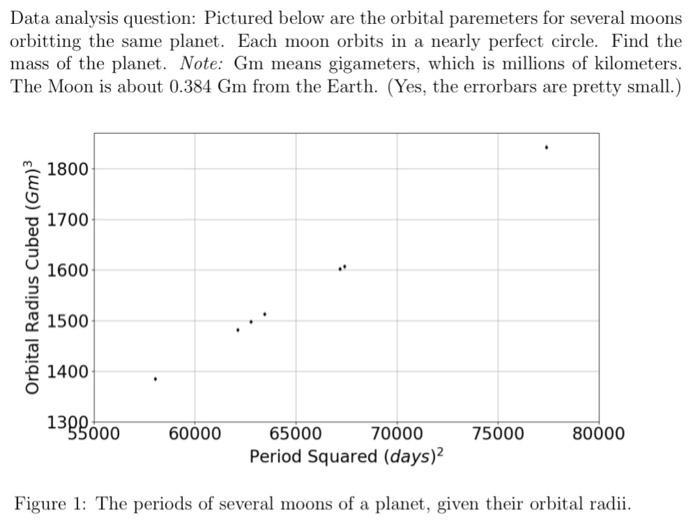Question
A = (58000, 1390) B = (62000, 1490) C = (62750, 1500) D = (63500, 1510) E = (67300, 1602) F = (67350, 1605) G

A = (58000, 1390)
B = (62000, 1490)
C = (62750, 1500)
D = (63500, 1510)
E = (67300, 1602)
F = (67350, 1605)
G = (77300, 1860)

Pictured below are the orbital paremeters for several moons orbitting the same planet. Each moon orbits in a nearly perfect circle. Find the mass of the planet. Note: Gm means gigameters, which is millions of kilometers. The Moon is about 0.384 Gm from the Earth. (Yes, the errorbars are pretty small.) Orbital Radius Cubed (Gm) 1800 1700 1600 1500 1400 1389000 60000 65000 70000 Period Squared (days) Figure 1: The periods of several moons of a planet, given their orbital radii. 75000 80000
Step by Step Solution
There are 3 Steps involved in it
Step: 1

Get Instant Access to Expert-Tailored Solutions
See step-by-step solutions with expert insights and AI powered tools for academic success
Step: 2

Step: 3

Ace Your Homework with AI
Get the answers you need in no time with our AI-driven, step-by-step assistance
Get StartedRecommended Textbook for
Income Tax Fundamentals 2013
Authors: Gerald E. Whittenburg, Martha Altus Buller, Steven L Gill
31st Edition
1111972516, 978-1285586618, 1285586611, 978-1285613109, 978-1111972516
Students also viewed these Physics questions
Question
Answered: 1 week ago
Question
Answered: 1 week ago
Question
Answered: 1 week ago
Question
Answered: 1 week ago
Question
Answered: 1 week ago
Question
Answered: 1 week ago
Question
Answered: 1 week ago
Question
Answered: 1 week ago
Question
Answered: 1 week ago
Question
Answered: 1 week ago
Question
Answered: 1 week ago
Question
Answered: 1 week ago
Question
Answered: 1 week ago
Question
Answered: 1 week ago
Question
Answered: 1 week ago
Question
Answered: 1 week ago
Question
Answered: 1 week ago
Question
Answered: 1 week ago
Question
Answered: 1 week ago
Question
Answered: 1 week ago
Question
Answered: 1 week ago
View Answer in SolutionInn App



